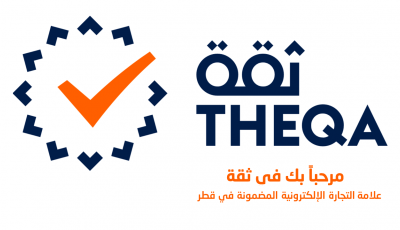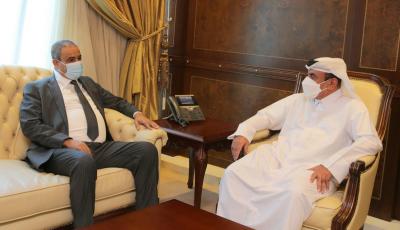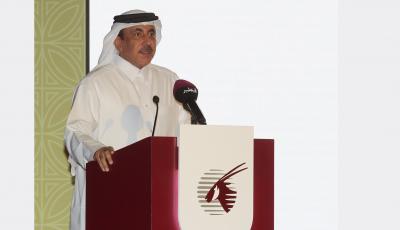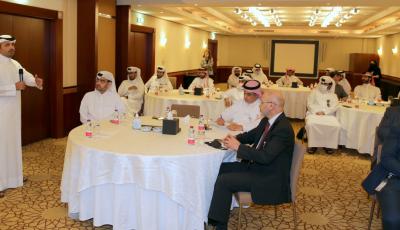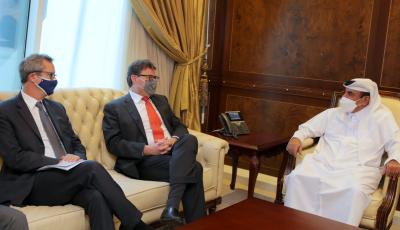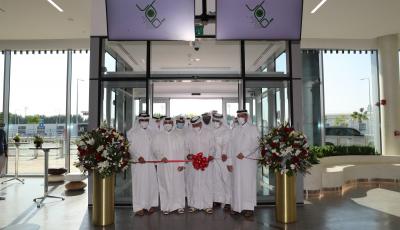
Minister Inaugurates Al Sudan Bus Station Equipped
Doha - Qatar Minister of Transport HE Jassim Saif Ahmed Al-Sulaiti today inaugurated Al Sudan Bus Station, which is equipped with electric charging equipment, in a step that supports the strategy of switching to electric vehicles that the Ministry developed in cooperation with bodies concerned. This came during an event at the site of the station, attended by Minister of Municipality HE Dr. Abdullah bin Abdulaziz bin Turki Al-Subaie, Minister of Environment and Climate Change Sheikh Dr. Faleh bin Nasser bin Ahmed bin Ali Al-Thani, President of Public Works Authority (Ashghal) Dr. Eng. Saad bin Ahmad Al Muhannadi and President of Qatar General Electricity & Water Corporation (KAHRAMAA) Eng. Essa bin Hilal Al-Kuwari. HE the Minister said that inaugurating the first out of eight public transit bus stations comes in the context of the Public Bus Infrastructure Program that aims at creating an integrated and sustainable public transit network to cover all urban areas through a coherent transportation that includes public transit buses, the Doha Metro and the Lusail Tram that will open soon. Five more public transit bus stations will be inaugurated before this year’s end at Lusail, Gharrafa, the Education City, Al Wakra and the Industrial Area, the minister said. Two more stations; the Central West Bay and Msheireb, will be inaugurated in 2022 and all those facilities are equipped with electric public bus charging infrastructure, he added. Inaugurating Al Sudan Bus Station today and the next ones later is especially significant as the FIFA World Cup Qatar 2022 nears, since the public transit network is a cornerstone for the success of that global event through providing a multimodal transportation system to give visitors an exceptional, safer, and smoother experience, the minister said. The Public Bus Infrastructure Program is one of the world’s most ecofriendly programs, “laying the groundwork for a full switch to a transportation system that is powered by clean, ecofriendly electric energy, thus backing the country’s sustainable development requirements.” HE Minister Al-Sulaiti said that Ministry of Transport is working on measuring improving the air quality in all public transit means and facilities within the framework of Qatar’s National Environment and Climate Change Strategy, thus bringing us one step closer to achieving the Qatar National Vision 2030 goals.” Ministry of Transport’s Technical Affairs Department Director Sheikh Mohamed Bin Khalid Al-Thani said that the massive public transit program in Qatar, which has begun to pay off, is giving the country a ranking alongside the countries that are most advanced in terms of public transit systems and transportation services offered to citizens, residents and visitors while deploying latest associated technologies such as payment methods and tracking systems. Al Sudan Bus Station is strategically located near the Sudan Metro Station and Al-Sadd SC southwards. The western side of the station is neighboring the Aspire Zone, the Villaggio Mall and the Torch Tower and other nearby destinations, he added. Built in an area of 65,216 sq. m., the station accommodates 7 bus bays that can operate 22 buses per hour, distributed on 4 routes with a total capacity of 1750 passengers per day, to reach 7 destinations, particularly the metro stations and bus stations located within a close range, Sheikh Al-Thani noted. The station building features an iconic curved canopy that spans above it, contributing to the brand identity associated with bus stations. The canopy evokes the ripples of sand dunes with the cladding on the underside of the canopy featuring linear baguette elements evoking the beautiful craftsmanship of traditional hand-made Qatari objects such as woven baskets. Public bus stations include ticketing outlets, offices for the operating company employees, a passenger waiting area and other visitor service facilities.

